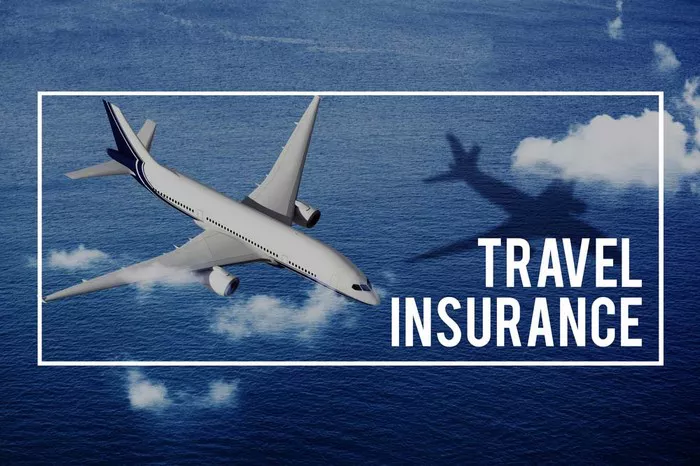Travel insurance is an essential part of planning any trip, offering protection against unexpected events that could disrupt or cancel your travel plans. However, many travelers wonder whether they can purchase travel insurance after their final payment for a trip. This article will explore the feasibility, implications, and considerations of buying travel insurance post-payment.
Understanding Travel Insurance
Travel insurance is designed to protect travelers from various risks associated with their trips. These risks include trip cancellations, medical emergencies, lost luggage, and travel delays. The primary types of travel insurance include:
Trip Cancellation Insurance: This covers the cost of your trip if you need to cancel due to unforeseen circumstances like illness or a family emergency.
Medical Insurance: This provides coverage for medical expenses incurred while traveling abroad, which may not be covered by your regular health insurance.
Travel Delay Insurance: This covers expenses incurred due to delays in your travel plans, such as accommodation and meal costs.
Baggage Insurance: This compensates for lost, stolen, or damaged luggage and personal items.
Emergency Evacuation Insurance: This covers the cost of transportation to a medical facility in case of an emergency.
The Timing of Travel Insurance Purchase
Typically, travel insurance is purchased soon after booking your trip. This timing is crucial because it often determines the scope of coverage. Here are some key points about purchasing travel insurance:
Pre-Existing Condition Coverage: Many travel insurance policies include a provision for pre-existing conditions if you purchase the insurance shortly after booking your trip. This coverage may not be available if you purchase insurance after making the final payment.
Cancellation Coverage: Some policies offer “cancel for any reason” coverage if purchased within a specific timeframe after making the initial trip deposit. This type of coverage generally needs to be bought within 14-21 days of the initial deposit.
Rate Lock: Purchasing insurance early can lock in rates and provide better coverage options. Waiting until after the final payment may limit your choices and affect the cost.
Can You Purchase Travel Insurance After Final Payment?
The short answer is yes, you can purchase travel insurance after making your final payment. However, there are several factors to consider:
Availability: While it is possible to buy travel insurance after final payment, the options available to you may be limited. Some policies may have restrictions or higher premiums if purchased close to the departure date.
Coverage Limitations: Insurance purchased after final payment may not offer the same level of coverage as policies bought earlier. For instance, coverage for pre-existing conditions or trip cancellations may be excluded or limited.
Cost: Insurance rates might be higher if purchased closer to the departure date. Providers may also offer fewer discounts or packages for last-minute purchases.
Policy Terms: Carefully review the terms and conditions of any insurance policy purchased after final payment. Ensure it meets your needs and provides adequate protection for your trip.
Reasons for Late Purchase
There are various reasons travelers might need to purchase travel insurance after making the final payment:
Last-Minute Trips: Some travelers may decide to take a trip on short notice and purchase insurance just before departure.
Change in Plans: Circumstances such as sudden illness or changes in travel plans might prompt a late purchase.
Initial Decision: Travelers who initially decided against insurance might change their minds and opt for coverage closer to their travel date.
Special Offers: Occasionally, insurance providers offer special promotions or discounts closer to the travel date, making late purchase an attractive option.
See Also: Do You Need Travel Insurance Before Booking Flights?
Steps to Take When Purchasing Late Travel Insurance
If you find yourself needing to buy travel insurance after making the final payment, follow these steps to ensure you get the best possible coverage:
1. Compare Policies
Use comparison tools or consult with insurance agents to compare policies. Look for coverage that suits your specific needs and check for any exclusions or limitations.
2. Review Policy Details
Carefully read the policy details, including coverage limits, exclusions, and terms. Make sure the policy covers all the aspects of your trip that are important to you.
3. Verify Coverage for Pre-Existing Conditions
If you have any pre-existing medical conditions, verify whether they are covered under the policy you’re considering. Some policies may not cover pre-existing conditions if purchased late.
4. Check Cancellation and Refund Policies
Ensure that the insurance policy offers adequate cancellation coverage. Understand the refund policies and how they apply to your situation.
5. Purchase Early if Possible
Even if you need to buy insurance after the final payment, try to purchase it as soon as possible to maximize coverage and avoid higher premiums.
Benefits of Early Purchase vs. Late Purchase
Early Purchase Benefits
Comprehensive Coverage: Early purchase allows you to access a wider range of coverage options, including protection for pre-existing conditions.
Lower Premiums: Purchasing insurance early often results in lower premiums compared to buying closer to the travel date.
Peace of Mind: Buying early ensures that you are protected from the moment you make your initial trip deposit, giving you peace of mind.
Late Purchase Benefits
Flexibility: Late purchase allows you to decide on insurance based on more concrete travel plans or changes in circumstances.
Potential Discounts: Occasionally, insurance providers offer discounts or special rates closer to the travel date.
Emergency Coverage: If unexpected events arise, late purchase may still provide essential coverage for immediate concerns.
Conclusion
In conclusion, while you can purchase travel insurance after making the final payment, doing so may come with limitations and higher costs. The best approach is to purchase travel insurance as soon as you book your trip to ensure comprehensive coverage and avoid higher premiums. However, if you find yourself needing insurance at the last minute, carefully evaluate your options, compare policies, and understand the coverage limitations. By taking these steps, you can still secure the protection you need for a smooth and worry-free travel experience.






















